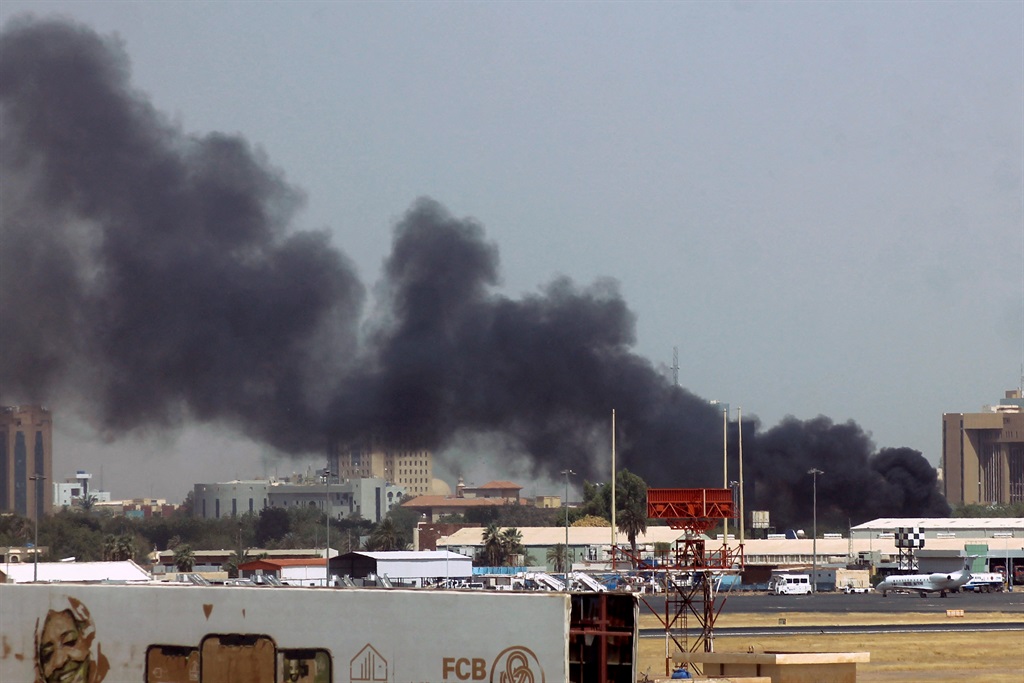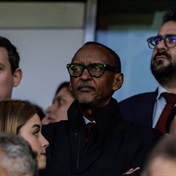
- Fighting continued in Sudan on Friday, despite calls for a ceasefire to observe Eid ul-Fitr.
- More than 400 people have reportedly been kille since violent clashes between rival factions began last week.
- Civilians have become increasingly desperate with thousands risking the dangerous streets to flee Khartoum, Sudan's capital.
The forces of two rival generals fought intense street battles in Sudan's capital Khartoum on Friday, witnesses reported, as the warring parties ignored appeals for an end-of-Ramadan ceasefire.
More than 400 people have been killed and thousands wounded since the fighting erupted Saturday between forces loyal to Sudan's army chief Abdel Fattah al-Burhan and his deputy, Mohamed Hamdan Daglo, the commander of the powerful paramilitary Rapid Support Forces (RSF) who is commonly known as Hemeti.
The Central Committee of Sudan Doctors said that overnight, as the Eid al-Fitr celebrations marking the end of the Muslim Ramadan month of fasting began, "several areas of Khartoum were bombed" and reported "shelling and clashes" for the sixth straight night.
Soldiers and paramilitaries fought fierce street battles Friday in densely populated residential areas of central and northern Khartoum, witnesses told AFP, with most of the city's five million people sheltering at home in the baking heat without electricity, food or water.
Both UN Secretary-General Antonio Guterres and US Secretary of State Antony Blinken called separately for a ceasefire of "at least" three days to mark Eid, as explosions and gunfire resounded in Khartoum.
The RSF, a powerful force formed from members of the Janjaweed militia that led years of extreme violence in the western Darfur region, said they would commit to a 72-hour ceasefire starting at dawn (4:00 GMT).
READ | UN chief pleads for ceasefire in Sudan during Eid celebrations
But, like two previous declared 24-hour ceasefires, it failed to take hold.
The crackle of intense gunfire continued on Friday morning, with columns of black smoke rising across the capital.
The World Health Organisation said 413 people had been killed and 3 551 wounded in the fighting so far across Sudan, in an update issued on Friday. The death toll is thought to be higher, however, with many wounded unable to reach hospitals.
On Thursday, dozens of Burhan loyalists protested in Port Sudan against the presence of the ambassador of the United Arab Emirates, which has been accused of links to Daglo.
"No to the foreign interference in the country's affairs," read a banner they carried.
Analysts have warned of countries across the region being dragged into the conflict.
For the first time since hostilities began a week ago, Burhan appeared on television.
He said in a pre-recorded video, which showed him sitting behind a desk in military uniform:
"We hope that we will come out of this ordeal more united... a single army, a single people... towards a civilian power."
The International Crisis Group (IGC) warned urgent steps were needed to stop a descent into "full-blown civil war", warning "the nightmare scenario that many feared in Sudan is unfolding."
The World Food Programme warned the violence could plunge millions more into hunger in a country where 15 million people - one-third of the population - need aid.
It has suspended its Sudan operations after the killing of three WFP workers on Saturday.
Burhan and Daglo's bitter dispute centred on the planned integration of the RSF into the regular army, a key condition for a final deal aimed at restoring Sudan's democratic transition.
Civilians are becoming increasingly desperate with thousands risking the dangerous streets to flee Khartoum, with many reporting streets strewn with corpses.
"This is a mere power struggle," said Abdul Wahid Othman, a 53-year-old in Khartoum. "They don't care about poor citizens who have been left without water, electricity... and water."
International efforts are being planned for the potential evacuation of citizens, including with the United States deploying forces for the possible airlift of US embassy staff.
Medics have warned of a catastrophe, with over two-thirds of hospitals in Khartoum and neighbouring states rendered "out of service" by the fighting, the doctors' union said.
Four hospitals in Obeid in North Kordofan state had also been "shelled".
In El Fasher in Darfur, some 800 kilometres (500 miles) southwest of Khartoum, Doctors Without Borders (MSF) said the situation was "catastrophic".
ALSO READ | South Korea to send military aircraft to evacuate own citizens from Sudan
"There are so many patients that they are being treated on the floor," said MSF project coordinator Cyrus Paye, reporting continued gunfire in the city.
Burhan and Daglo toppled autocratic president Omar al-Bashir together in April 2019 following massive protests against his three decades of iron-fisted rule.
In October 2021, they again worked together in a coup to oust the civilian government installed after Bashir's downfall, derailing an internationally backed transition to democracy.
"With neither Burhan nor Hemeti appearing ready to back down, the situation could get much worse," the ICG think tank said, adding that while some analysts thought the army would succeed in on its "home turf" in Khartoum, the risk of an all-out conflict remained.
"Even if the army eventually does secure the capital, and Hemeti retreats to Darfur, a civil war could well follow, with potentially destabilising impact in neighbouring Chad, the Central African Republic, Libya and South Sudan", the ICG added.




 Publications
Publications
 Partners
Partners
























